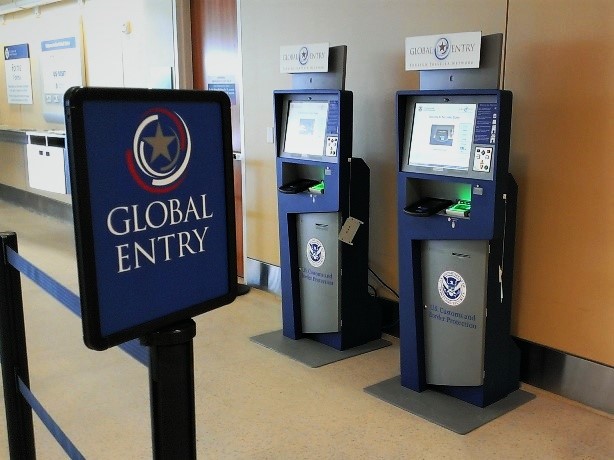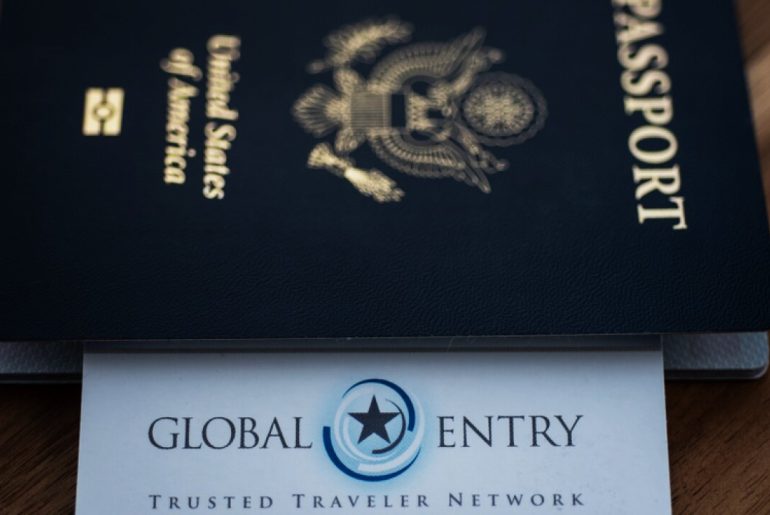Global Entry is a program administered by U.S. Customs and Border Protection (CBP) that allows expedited clearance for pre-approved, low-risk travelers upon arrival in the United States. As part of the Trusted Traveler Programs, it significantly reduces wait times at airports and enhances the travel experience for frequent international travelers. Members can use automatic kiosks at select airports for faster processing, making it an invaluable tool for business travelers and tourists alike who regularly cross U.S. borders.
How Does a DUI Affect a Person’s Global Entry Status?
Global Entry Requirements Regarding Criminal Records
Global Entry, administered by U.S. Customs and Border Protection (CBP), has strict eligibility criteria, particularly concerning applicants’ criminal records. The program is designed for low-risk travelers, and part of assessing this risk involves a thorough background check. This check includes a review of the applicant’s criminal history. The CBP’s aim is to ensure that individuals with a history of violations that may pose a security risk or indicate a disregard for law and regulations are not granted the privilege of expedited entry.
Impact of a DUI Conviction on Eligibility
A Driving Under the Influence (DUI) conviction can be a significant factor in determining eligibility for Global Entry. DUIs are generally considered serious criminal offenses, and their presence on an individual’s record can lead to disqualification. This is especially true if the DUI conviction is recent or if there are multiple DUI convictions on record.
However, it’s important to note that not all DUIs are treated equally. The specifics of the conviction, such as the severity of the incident, the presence of aggravating factors (such as injury to others or property damage), and the time elapsed since the offense, can influence CBP’s decision.
CBP Assessment Process for Applicants with DUI Convictions
The assessment process by CBP for Global Entry applicants with DUI convictions is multifaceted. When a DUI appears on an individual’s record, CBP officers will:
- Review the Specifics of the Conviction: They look at the severity of the DUI, any related charges, and the overall circumstances of the incident.
- Consider the Recency of the Offense: Recent convictions are more likely to negatively impact eligibility compared to older offenses. The time elapsed since the offense can play a significant role in the assessment.
- Evaluate Overall Criminal History: CBP considers the DUI in the context of the applicant’s entire criminal history. Multiple offenses or a pattern of law-breaking behavior is more detrimental to an application than a single, isolated incident.
- Examine Rehabilitation Efforts: In some cases, evidence of rehabilitation, such as completing a DUI education program or community service, can be a mitigating factor.

Will Expungement Help Global Entry?
Yes, a DUI can disqualify a person from Global Entry.
Expungement is a legal process through which a criminal conviction is sealed or erased from an individual’s record. It’s often pursued by individuals looking to clear their records for employment, housing, or other purposes. Expungement varies by jurisdiction, but generally, it means that legally, the offense is treated as if it never occurred. However, it’s important to note that in some contexts, especially involving federal agencies or for security clearances, expunged records may still be considered.
Influence of DUI Expungement on Global Entry Eligibility
When it comes to Global Entry, an expunged DUI does not automatically guarantee eligibility. U.S. Customs and Border Protection (CBP) has its own set of guidelines for evaluating applicants, and they may still take expunged offenses into account. CBP has access to law enforcement databases and can view the complete criminal history of applicants, including expunged convictions.
The impact of an expunged DUI on Global Entry eligibility can vary based on:
- The Nature of the Offense: CBP will consider the seriousness of the original DUI offense. More severe offenses may have a greater impact on eligibility, even if expunged.
- Time Since the Conviction: The length of time that has passed since the DUI conviction and expungement can play a role. A more recent offense may be scrutinized more closely.
- Applicant’s Overall Record: The presence of other criminal offenses on the applicant’s record, even if unrelated to the DUI, can influence CBP’s decision.
Legal Perspectives and CBP Policies on Expunged DUI Offenses
From a legal standpoint, expungement reflects a certain level of rehabilitation or fulfillment of legal obligations, which can be a positive factor in many situations. However, in the context of CBP and Global Entry, it’s clear that the agency exercises discretion based on security concerns and its mandate to maintain the integrity of U.S. borders.
CBP’s policy is to review each Global Entry application on a case-by-case basis. This means that while an expunged DUI is not an automatic disqualifier, it does not guarantee acceptance into the program either. Applicants with an expunged DUI are advised to provide all relevant information and documentation regarding their expungement during the application process.
What are California Vehicle Code 23152a and 23152b VC?
California Vehicle Code 23152a and 23152b
California’s Vehicle Code 23152a and 23152b are two statutes that comprehensively define the offense of driving under the influence (DUI) in the state. These codes are crucial in understanding DUI laws in California, as they lay out the specifics of what constitutes a DUI offense.
Vehicle Code 23152a
- Definition: This section makes it illegal to operate a vehicle under the influence of alcohol or drugs. It focuses on the actual impairment of the driver.
- Impairment Assessment: The law considers a driver under the influence if their physical or mental abilities are impaired to the extent that they can no longer drive as well as a cautious sober person.
Vehicle Code 23152b
- Definition: This section addresses driving with a blood alcohol concentration (BAC) of 0.08% or higher.
- Per Se DUI: Unlike 23152a, 23152b is a “per se” DUI law. It doesn’t matter how well someone can drive; if their BAC is 0.08% or higher, they are considered to be driving under the influence.
Connection with Global Entry
Understanding these specific codes is vital when examining the impact of a DUI on Global Entry eligibility. A conviction under either of these sections can be seen as a serious offense by CBP, potentially affecting an individual’s acceptance into or continuation in the Global Entry program.
What are Some Other Penalties for a California DUI?
Overview of Penalties
DUI convictions in California come with a variety of penalties that can include:
- Fines: Substantial monetary penalties, often several thousand dollars.
- Jail Time: Possible imprisonment, the length of which can vary based on the offense’s severity and whether it’s a first or subsequent offense.
- License Suspension: Suspension of the driver’s license for a certain period.
- DUI Programs: Mandatory attendance in DUI education programs.
- Probation: Periods of probation, which may include conditions like regular alcohol testing.
Relation to Global Entry Assessment
When CBP evaluates a Global Entry application, these penalties, especially jail time and multiple offenses, can be indicative of a person’s reliability and adherence to laws. Severe or multiple penalties can lead to a negative assessment of an individual’s eligibility for Global Entry.
Additional Consequences
Beyond legal penalties, a DUI conviction in California can have broader implications:
- Insurance Rate Increases: Convicted drivers often face higher auto insurance premiums.
- Employment Implications: Certain jobs, particularly those requiring driving, might be off-limits.
- Social Stigma: The stigma attached to a DUI conviction can have personal and professional consequences.
In conclusion, travelers with DUI convictions, especially under stringent statutes like California’s Vehicle Code 23152a and 23152b, need to be aware of the challenges they may face in accessing expedited travel programs like Global Entry. It is always advisable to consult with legal experts and thoroughly understand one’s situation and options, keeping in mind that honesty and transparency are crucial in any dealings with CBP and other authorities.
